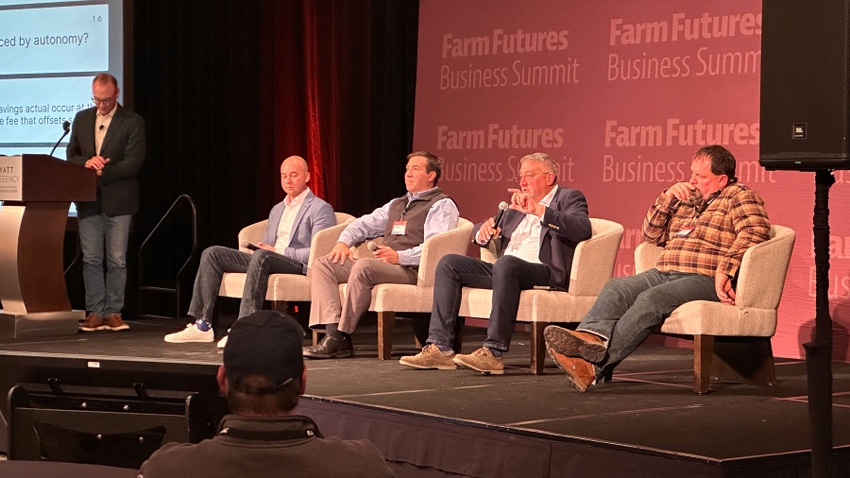
Labor shortages that have plagued many industries across the U.S. since the pandemic were a problem for agriculture even before anyone heard of COVID-19. But farmers in search of solutions might be able to turn to technological advances to ease some of that pain.
“Labor is becoming a challenge,” notes Ben Sheldon, sales manager with Raven. “Resource scarcity is not getting any easier.”
Multiple ag equipment companies are all too aware of this reality and have various autonomous vehicles in development.
The idea of true autonomy, where a tractor would conceivably run 24/7 without human intervention, could be a real labor and cost saver for you. But you should also familiarize yourself with the concept of “supervised autonomy,” according to Kurt Maertens, technical service representative with BASF.
“What are some of the first jobs some of you did on the farm, especially if you were behind the wheel of a tractor?” asked Maertens during the recent Farm Futures Business Summit. “That’s where a lot of our emphasis and focus is going to be.
“These advanced systems and neural networks are going to have to learn tasks. So, we want to start by automating grain carts and tillage.”
The general idea is that an experienced human operator would still drive the main tractor or combine, and be able to supervise various autonomous auxiliary equipment in the vicinity.
Support system
Learning new technologies is sometimes an uphill battle, and farmers also need assurance that this tech will have the proper service and support, according to Jason Orr, a fellow panelist and a fifth-generation farmer from Iowa.
“When it comes to idle time in the tractor, there’s a pretty good chance the farmer is sitting in there trying to figure out the technology,” Orr said.

Iowa farmer Jason Orr says he has sampled many other technologies since his first foray into yield mapping software back in 1998.
For his part, Orr said he generally embraces new ag tech when it becomes available — from acquiring yield maps starting in 1998 to using a drone scouting service this past season. And he has sampled many other technologies along the way.
Regarding the drone scouting service, Orr said that decision eased his labor needs by one employee, and he jokes that the partner knows more about his fields than he does.
The other side of labor-saving technology, Orr said, is service.
“There comes a factor where the labor on the companies and their support comes into play,” he said. “We can buy all of this stuff ourselves, but without support, it does us no good.
“Good service, no matter the time of day, is worth its weight in gold, especially during busy times in the season.”
5 potential drawbacks to autonomy
A few perks of autonomous vehicles running on a farm operation would be more acres being worked in a day, or night, with fewer employees. But potential drawbacks or barriers to entry will likely arise as this technology becomes increasingly available.
Here are a five to keep in mind:
High initial cost. This should come as no surprise, but assume a six-figure investment (at minimum) will be needed to get started.
Technical complexity. Learning new skills will be a part of the onboarding process.
Regulatory challenges. As autonomous vehicles become more popular — both within and outside of the ag industry — regulations and compliance issues are likely to pop up from local, state and federal agencies.
Limited judgment. Are you confident that an autonomous vehicle can make the same nuanced decisions as a human operator?
Infrastructure needs. If you’re in an extremely remote area that has limited GPS coverage or communication network challenges, that could be a barrier to adoption.
Read more about:
LaborAbout the Author(s)
You May Also Like






